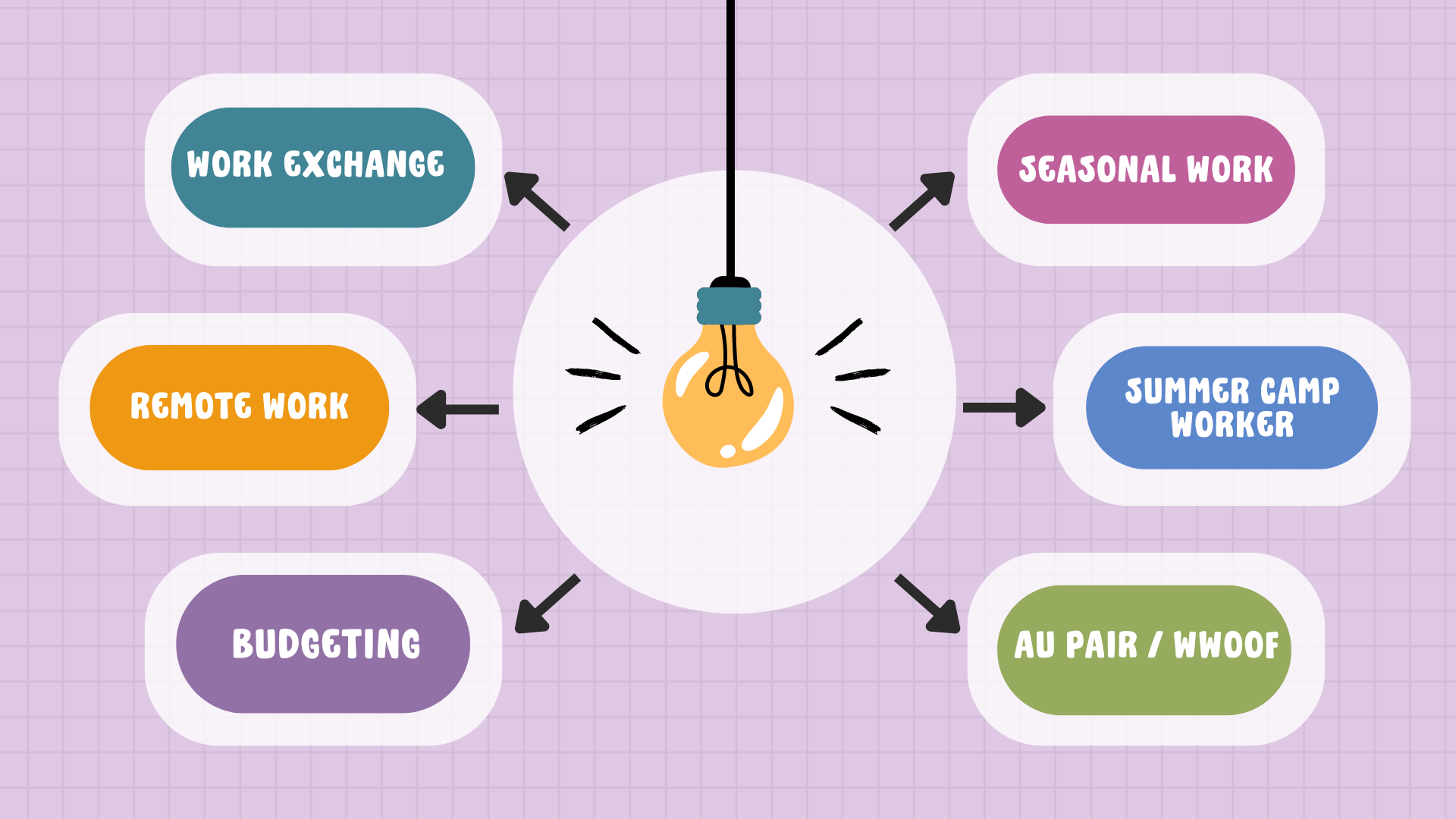Simplest ways to fund a gap year!

Knowing how to afford making memories of a lifetime can be intimidating. Here are the best tricks for financing a gap year and travelling.
The best skill any traveller conscious about finances can learn is how to budget effectively with sufficient planning. Constructively budgeting allows you to make informed decisions and make the most of the money you have by prioritising which areas you want to invest more money in. After all, travelling is an investment given the amount you learn! This isn't only learning about cultures or the history of an area but also learning all about yourself as an individual. Travelling also helps strengthen life skills such as problem solving.
If you are specifically heading for a gap year of travelling after studying, I recommend picking up a part time job as early as you can. This would allow you to save as much as possible so you can head straight off after your studying is finished... almost as a reward! However, to pick up a part time job alongside studying you must be very proactive, motivated and have the time with everything else you have going on. Alternatively, a realistic way of affording a gap year would be by doing a period of work before you leave and then budgeting effectively. This could be doing some seasonal work for 8 weeks before you leave and using this amount earnt as your max budget. I used this method to travel Iceland for a month in February after completing some seasonal work over Christmas. I even had some spare to afford Christmas without going into savings!
No funds? No worries
If you're predicting the pot to be looking a little dry at the beginning of your travels and you're still raring to head straight off to a new destination; your best bet would be to sign up for work at a summer camp, apply for jobs abroad or partake in a work exchange. These normally need some preparation and application shortlisting somewhat in advance, but many employers may look for last minute employees who can start immediately. So don't rule out working aboard if you're already halfway through your adventures. The most common camp you will hear discussed is campamerica, campcanada etc. but there are many others including summercamps. Working for these camps is usually for 9- 1o weeks over the summer period (camp America typically runs between the beginning of may to august for which you start/end on prior agreed dates depending on your schedule e.g. when you finish exams). There are a variety of rolls so this option could fit well with you. If you're curious if camp work is for you head over to https://eee-xplorer.com/working-a-summer-camp-for-me/. Working for these camps usually has the age requirement 18-30 years but they are typically more popular with the younger of this bracket. Camps allow you to meet other young people while giving you the opportunity to earn some money abroad. A huge benefit to this route is the camp organisers will also help you with your visa applications. Additionally, due to the format and length of working with the camps there are some weeks spare on your visa. These can be used at the end of your working period to travel the country with fellow camp workers using the money you have just earnt. The cons to these camps is the money you earn from the amount of hours you end up working is minimal.
Appling for a job abroad or having a remote job are good alternatives for better pay whilst still visiting a new place. However, for a remote job you often require a refined skill such as social media management. This is not realistic for many young travellers so I wont bang on about this option! Working abroad at a foreign job can also be challenging as you will likely have to sort your own visas and may have to sort all the logistics yourself that camps would do for you. This may include sorting your own accommodation and food which can be difficult in a place you're from let alone a place you've never even visited. There are some jobs which will help organise staff accommodation you just have to do research! You can also find work abroad by using a work provider website such as AceWorkingHolidays. BUT....... you have to pay them to get the job in the first place before you earn any money yourself (this can be upwards of £1000!). They can also have the reputation of poor hours and longer contracts are dependent on trial periods regardless of the fact you've paid money for the work in the first place! You also need to ensure you do plenty of research into what benefits are provided to make sure it's worth it.
A highly recommended suggestion that isn't quite so popular is work exchange. Although you would not earn any money you would also not spend much, therefore still making travel more affordable. Work exchange may include helping on a farm or completing odd jobs in exchange for accommodation and/or other benefits. A renowned organisation which follows this principle is WWOOF'ing. They will host people in exchange for working on organic farms. Other work exchange can be found on the internet and local advertisements.
Certain jobs may combine multiple pointers I have already made. For example, Au pair work is a specific example that can be paid, completed as a work exchange or a combination of both. Families looking for an au pair may even pay for your flights. I have one friend who got on so well with the family she was assigned that they invited her to return after their initial agreement was finished. She now goes back to help the family every summer! You can find au pair work online by organisations such as aupairworld. They will assign you with a family that is the best match. To complete au pair work you will need childcare experience, often a background check (DBS) and sometimes qualifications.
